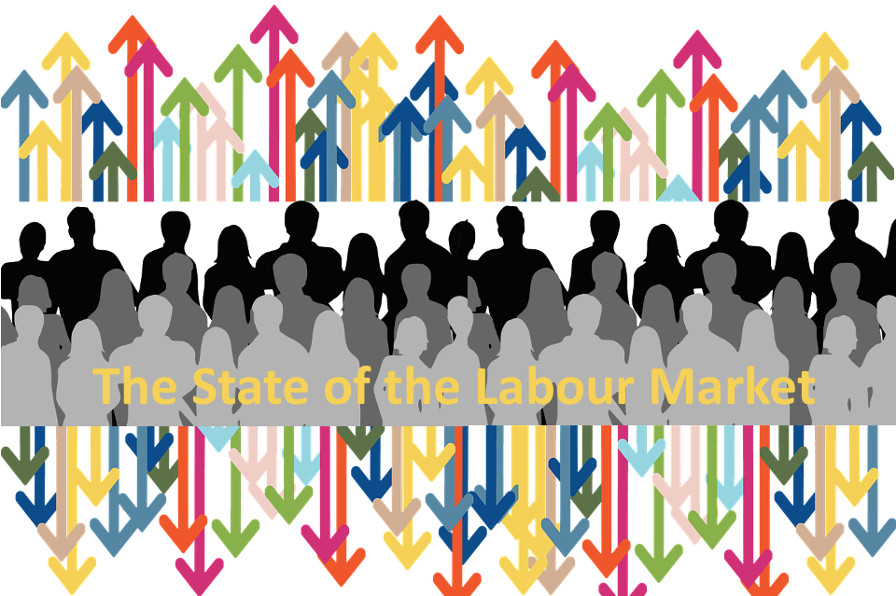A nervous eye on the UK labour market

After such a prolonged political car crash and the welcome removal of the Tories by the electorate on US Independence Day, it is quite deflating to see how Labour has taken on the mantle of dispiriting and underwhelming leadership. The country is not actually asking for much, I sense, from its politicians; an ability to listen, quietly reflect, and so deliver competent policy making.
Alas, the Starmer regime has very uncomfortably mirrored elements of the disrespected Tories from undeclared clothing allowances to Taylor Swift concerts. Furthermore, the narrative around the October 2024 Budget has not been well curated, quite the opposite, leading single-handedly to a notable market down in British consumer confidence, quite an achievement really, whilst business has paused commitments until there is greater clarity on economic and industrial policy. If it was not so ridiculous it could be quite funny but the Leader of House’s assertion that new Chancellor of the Exchequer, Rachel Reeves, has already prevented a run on the pound displays worrying economic illiteracy that beggar’s belief.
Hence, despite the pre-election rhetoric, Labour is appearing rather ill-prepared for Government, as opposed to electioneering and the noise of opposition, naive and so it is creating worry lines for many. One area where my worry lines are becoming more pronounced is the prospects for the British labour market, something of a remarkable blessing for the economy for much of the century to date. Whilst the ONS, those folks who feel entitled to work from home, cannot give much confidence as to the veracity of its data, unemployment in the UK remains absolutely and relatively low by international standards. Indeed, as the migration data informs us, the UK is a country where a lot of folks would like to come to live.
Whilst many wealth creators, generators and out right wealthy folks will be keeping a keen eye on the Chancellor’s taxation plans in the autumn 2024 Budget, many business folks, especially those where the people load is heavy, including the food system, will be keeping the other one on the new Government’s pronouncements on employment rights and regulations amongst other things. The devil will be in the detail here, but a combination of policies could mean that the labour supply may increase whilst the cost and so appetite for the factor of production may also rise through statute, so potentially leading to higher unemployment.
On the supply side, we shall watch with interest to see how Labour goes about reforming the health service with a view to reducing ill-health and cutting waiting lists, necessary and laudable ambitions (whilst there are malingerers out there for sure, many folks do wish to work).
Equally, will steps to encourage people to work, the able bodied non-employed component of the UK labour market has mushroomed since the Coronavirus pandemic, plus possible evolution of the benefits system when it comes to ill-health, as well as ongoing high-levels of in-migration, which if it averaged say 400k per annum could mean another 2m, people coming to the UK during this 2024-29 parliament, all add up in just three policy areas to a notable increase in the labour pool (over 700k people, net moved to the UK in 2023)?
In a market economy, such an increase, would ordinarily result in the price of labour easing in the absence of a stepped upward adjustment in aggregate demand, which is easier to say than to engineer. So whilst health, migration, and welfare policy evolve, employers also await a series of policy measures including the National Living Wage award from April 2025, under the Tories this rose by 9.8% in April 2024, whether or not employers’ National Insurance Contributions increases in the Budget, plus changes to the aforementioned employment regulations, including suggestions that employees’ full rights kick-in on day one.
Business lobby groups have been engaging with Government on how it sees a practical evolution of the UK labour market albeit somewhat in the dark ahead of the detail being revealed. One can only hope, however, that the arguments are well curated, and that Ministers’ listen well. The reason for making this assertion is that there is an ongoing but rapidly evolving evolution of technology across agriculture, manufacturing, and professional services, that is also conditioning labour markets, in some, many, cases, leading to scope for a permanent replacement.
Whilst alive to claims of scaremongering, the introduction of the NLW, for example, did not lead to an implosion of the UK labour market, the combined impact of potentially evolving supply and demand side factors need to be carefully considered, otherwise, the conditions around which unemployment notably rises could remove the economic blessing of the twenty-first century.
In this respect, and seeking to be constructive, I see scope for the government to more seriously address the skills problems of the UK through a series of reforms in areas such as the broken apprentice system, vocational training, and the support for businesses to train young and old. Indeed, in the digital age, a combined policy of elevated capital formation alongside investment in human capital may merit the upward adjustment to the national debt parameters if undertaken in the correct manner with the Bank of England and the Office for Budget Responsibility brought into the policy tent, a debate for another occasion.
Such a policy framework could mean that amidst a more stable macroeconomic context, the best days might just be ahead for Britain. However, not thinking through the wider factors conditioning the British labour process and not investing in the capability of the nation could make for a negative double whammy.
For business, all this is quite disconcerting, which means that more often than not there is an unwillingness to hire additional labour in the private sector; the public sector retains substantial shortages in areas like social care. Indeed, I sense that the appetite to replace labour with capital is growing amongst firms, as the former becomes more pricey and less able, especially if regulations deteriorate the attractiveness of recruitment, the economic equation also moving against employment growth, which is a further cause for concern about the robustness of the UK jobs market down the line.
In this respect, Coriolis is expert in helping food companies become more productive, measuring the productivity of labour, optimising labour schedules, for example, which kicks into the wider need for people. If you wish to discuss your production plans and the people requirements therein, do give Mark Dudley, Chair, a call.
The commencement of Labour’s five-year rule to 2029 has not gone well, one has to hope that competence levels positively evolve, otherwise the credibility and authority of the British democratic model could weaken still, with the downside that such an outcome could entail. Thankfully, it is early days, but let’s see…
Dr Clive Black
Senior Advisor
Coriolis Consulting
September 2024








